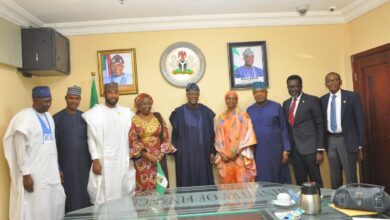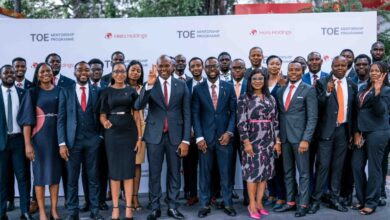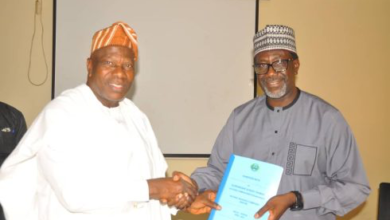Highlighting Emerging Market Insurers Preparation for IFRS 17 Adoption

Insurance companies are gearing up for the most significant change in global accounting standards in close to two decades.
This article highlights the steps taken by insurance operators in the emerging markets to ensure seamless transition to International Financial Reporting Standard 17 (IFRS 17).
Come January 1, 2023, the International Financial Reporting Standard 17 (IFRS 17) will come into effect.
Replacing the previous standard, IFRS 4, which was issued in 2004, IFRS 17 aims to standardise insurance accounting globally in order to improve comparability and increase transparency by applying an uniform approach. This is expected to help those in the industry better understand individual insurers’ financial position, performance and risk exposure.
The forthcoming standard will be the first time that a single IFRS accounting model applies to all types of insurance contracts; it also seeks to align insurance accounting as much as possible with the general IFRS accounting of other industries.
Oxford Business Group, In a report titled “How prepared are emerging market insurers for IFRS 17?” stated that a lack of transparency and consistency in financial reports was seen as a major factor discouraging global investors, the implementation of the new standards is expected to facilitate an increase in capital and finance in the insurance industry.
“The standards for IFRS 17 were developed by the International Accounting Standards Board, an independent body of the IFRS Foundation, with 144 jurisdictions fully adopting the standards to date,” the report added.
Implementation challenges
While seen as a positive step towards aligning accounting practices and improving transparency, the introduction of the standards poses several challenges for insurers in emerging markets.
At a fundamental level, the transition to IFRS 17 will require a large number of insurance firms to alter their reporting practices.
In addition to changes to financial statement presentation, industry analysts expect the new standards to be accompanied by considerable data and IT upgrades, as they require greater depth and quality of data to fulfil.
These requirements present challenges for emerging markets, as insurers seek to balance the financial costs and human resource demands with the benefits of adoption.
Preparation in emerging markets
As the implementation date for IFRS 17 nears, the level of readiness among insurers varies by region, country and company.
Indeed, in a May report assessing MENA countries’ readiness, US credit ratings agency AM Best noted that despite the fact that few companies in the region were fully prepared for the transition, the region’s more mature financial markets had demonstrated a greater level of preparedness, particularly with regards to larger market-leading insurers.
Saudi Arabia has been particularly proactive on this front, with sector authorities requiring insurers to comply with a series of preparation and implementation milestones. For example, in December 2018 the Saudi Arabian Monetary Authority – now known as the Saudi Central Bank – launched a four-phase plan for the insurance sector to transition to IFRS 17.
In countries with less regulatory oversight and engagement with IFRS 17, AM Best notes that the level of preparedness has been less consistent, and that the transition has been largely market-driven and led by large insurers.
A similar market-driven approach has been seen in Latin America. Indeed, many insurers across the continent have begun implementing IFRS 17, despite the fact that Brazil, Colombia, Mexico and Peru are not signatories.
In some cases, the region’s insurance companies operate internationally, in markets where IFRS 17 compliance is required. In other cases, the insurers either have or are subsidiaries of foreign insurance companies, in which case they have already been IFRS compliant for a number of years.
Mixed readiness in Asia-Pacific
The Asia-Pacific region, for its part, hosts some of the world’s most prepared countries, led by South Korea, but also includes Australia, China, New Zealand and Singapore, which are all expected to implement IFRS 17 by the beginning of next year.
Meanwhile, in another example that underscores the relative preparedness of countries with mature financial services sectors, Malaysia is on track to meet the 2023 implementation deadline.
Despite this progress, several other countries are tipped to experience delays and difficulties in implementing IFRS 17 standards.
For example, Thailand has delayed its start date to January 1, 2024, while Indonesia and the Philippines have both pushed their implementation dates to 2025 in order to give the insurance industry more time to prepare.
Nigeria On Track…..NAICOM Sets Up Committee
To ensure a seamless adoption of the International Financial Reporting Standard (IFRS 17) in the Nigerian Insurance Industry, the National Insurance Commission (NAICOM) has inaugurated the Sub Working Groups (SWGs) of the Insurance Industry Financial Reporting Working Group (llFRWG).
The sub-working Groups was constituted to assist the Insurance Industry Financial Reporting Working Group (llFRW) to provide guidance for seamless adoption of IFRS 17 which will take effect from January 1, 2023.
Speaking at the inauguration ceremony in Lagos, the Commissioner for Insurance, Sunday Thomas said the Insurance Industry Working Group (llFRWG) which is the initiative of the Commission was inaugurated on 2nd of March 2020 as an advisory and the consultative team of experts for the purpose of seamless adoption of IFRS 17 in Nigeria.
He stated that the initiative is in line with the Commission’s strategic goal as IFRS 17 will facilitate transparency and accountability in financial reporting.
According to him, “On this note, I am glad to state that the Working Group has performed creditably well and we appreciate all the members for selfless service to the Nigerian insurance industry in this journey to IFRS 17.
“We all know that in May 2017 the International Accounting Standard Board (IASB) issued the International Financial Reporting Standard 17 (IFRS 17) Insurance Contract which will replace the present IFRS 4 on accounting for insurance contracts with effective date of January 1, 2023.
“Thus, beginning from January 01, 2023, all insurance and reinsurance contracts must be reported in accordance with IFRS 17 whose objective is to ensure and provides relevant information that faithfully represents the insurance contracts. This information forms the basis for users of financial statements to assess the effect that insurance contracts have on the entity’s financial position, financial performance and cash flows.
“If the effective date of application is not shifted further by the IASB, it therefore means that Nigeria insurance industry has less than two (2) years to prepare for the adoption of IFRS 17. It is against this backdrop that the Commission hereby constitutes a Sub Working Group that will help to foster the country’s adoption of the IFRS 17 inline best practice.
“The Commission had equally issued a “Roadmap” on Adoption of IFRS 17 Insurance Contract for Insurance Industry in Nigeria” on January 28, 2020.
“The activities and timelines in the Roadmap are intended to set the tone and facilitate a coordinated process and action steps. The Roadmap was issued for general adoption by all Insurance, Reinsurance, Takaful and Micro Insurance Companies in Nigeria.
“In addition to the inauguration of the llFRWG and issuance of the Roadmap, the Commission had organized IFRS awareness training on IFRS 17 for CEOs, Non-Executive Directors and Accountants of insurance and Re-insurance companies in Nigeria. The two days awareness training session was equally a huge success.
“It is now in furtherance to providing technical recommendations and production of relevant guidance for the implementation of IFRS 17 that members of the IIFRWG are now grouped into SWG that we are today inaugurating. The Sub Working Groups are constituted to assist the IIFRWG in the achievement of it mandates by considering those technical aspects in the implementation of IFRS 17 and that will support in the seamless transition,” he said.
Thomas maintained that Members of the various SWGs comprises some selected members of the IIFRWG and the co-opted members selected from the various organisations.
According to him, membership of each of the SWG was selected based on a member area of strength in terms of knowledge and experience to contribute meaningfully to the achievement of the assignment of the SWG. The aim is to ensure that the views from stakeholders interested in insurance financial reporting issues are properly considered in discussions at SWG, he said.





